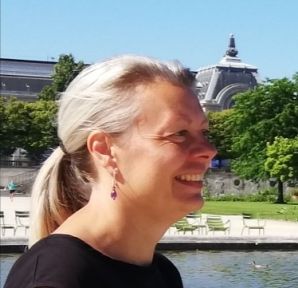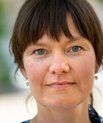DKK 18.2 million for research into our perception of drugs, time and quality of life
Margit Anne Petersen, Dorthe Kirkegaard Thomsen and Ali Amidi from the Department of Psychology and Behavioural Sciences at Aarhus BSS, Aarhus University have received DKK 18.2 million from the Danish Council for Independent Research.



The three researchers from the Department of Psychology and Behavioural Sciences at Aarhus BSS, Aarhus University have each received a Research Project 2 grant of approximately DKK 6 million from Independent Research Fund Denmark.
Associate Professor Margit Anne Petersen from the Centre for Alcohol and Drug Research at the Department of Psychology and Behavioural Sciences has received funding for her project "Pharmaceutical Trajectories: Transformations in the meanings and uses of prescription tranquilizers”.
She will investigate the use of prescription tranquilizers as a recreational drug among youth. She aims to analyze how the perception of these drugs has changed throughout history, particularly through American popular and music culture, and to explore young Danish users' perceptions, personal experiences, and potential addiction to these substances. Additionally, she will examine how the sale and promotion of these drugs occur on online markets and social media.
"I'm really excited that this grant will enable me to delve into an increasingly relevant topic that we actually know very little about in a Danish and European context: namely how benzodiazepines, such as Xanax and other tranquillisers, move around in both a physical and cultural sense. The project will focus on young users and their pathway to using these medicines, both inside and outside the healthcare system. It will also focus on the grey zone between what is understood as medicine and intoxicants. Furthermore, the project will look at treatment practices, digital communities and cultural representations that mention and interact with benzodiazepines and similar drugs," says Margit Anne Petersen.
Psychology Professor Dorthe Kirkegaard Thomsen has received funding for her project "Supporting Personal Recovery: Testing a Narrative Identity Intervention”.
The project focuses on personal recovery, i.e. experiencing quality of life, meaningfulness, control over one's life situation and hope while living with a mental illness.
The background for the project is that many people with severe mental illnesses still feel unwell, despite receiving medical treatment. This underscores the need to focus on personal recovery, living a good and meaningful life with a mental illness. Research shows that poor well-being and problems with personal recovery may be linked to an identity negatively impacted by living with severe mental illness.
In this project, Dorthe Kirkegaard Thomsen and her colleagues are testing a new treatment that uses storytelling to strengthen people's sense of worth and positive identity.
"I'm thrilled that now it’s possible to expand our tests of the narrative identity intervention that we have developed based on our book "Storying mental illness and personal recovery", which was published last year," says Dorthe Kirkegaard Thomsen, and she continues:
"The results are important for improving support for people with mental illness, and our hope is that the intervention can benefit very many people."
Dorthe Kirkegaard Thomsen's project group collaborates across institutions and contributes with different expertise, also in terms of involving relevant partners from practice. Besides Dorthe herself, the project team includes Assistant Professor Rikke Amalie Agergaard Jensen (University of Southern Denmark), Associate Professor Lynn Ann Watson (Department of Psychology and Behavioural Sciences at Aarhus University), clinical psychologist and PhD Tine Holm (Skejby University Hospital) and Professor Mike Slade (University of Nottingham).
Psychology Associate Professor Ali Amidi has received a grant for his project "The Time of Our Lives: At the Intersection of Biological and Psychological Time”.
Ali Amidi is exploring how people perceive and experience time. Can our biological clock, also known as the circadian rhythm, influence our perception of time? And can our perception of time change our biological clock?
"Receiving a Research Project 2 grant from the Danish Council for Independent Research means a lot to me - both as a researcher and personally. The grant gives me an opportunity to conduct research in an exciting and interdisciplinary research field that connects psychology and chronobiology, where the goal is to gain a deeper understanding of how the body and mind interact to realise our experience of time. The grant will also strengthen our newly established Sleep & Circadian Psychology Research Group (SCAPE), which aims to research the relationship between circadian rhythms, sleep, and mental/physical health," says Ali Amidi about receiving the grant.
Our modern society is highly dependent on time and schedules, and according to Ali Amidi it is important to understand how we perceive and estimate time in our daily lives. If we can understand these factors better, we may be able to improve our time management both at work and at home.
The project includes various experimental studies, including one where participants live in an isolated research apartment for five days to see if changes in our perception of time can alter our biological clock.
"The grant will be used on the project's three research studies and it gives me an opportunity to attract talented young researchers to our research group and to Aarhus University," concludes Ali Amidi.
Further info
- Read more about Margit Anne Petersen and her research
- Read more about Dorthe Kirkegaard Thomsen and her research
- Read more about Ali Amidi and his research group Sleep & Circadian Psychology Research Group (SCAPE)







